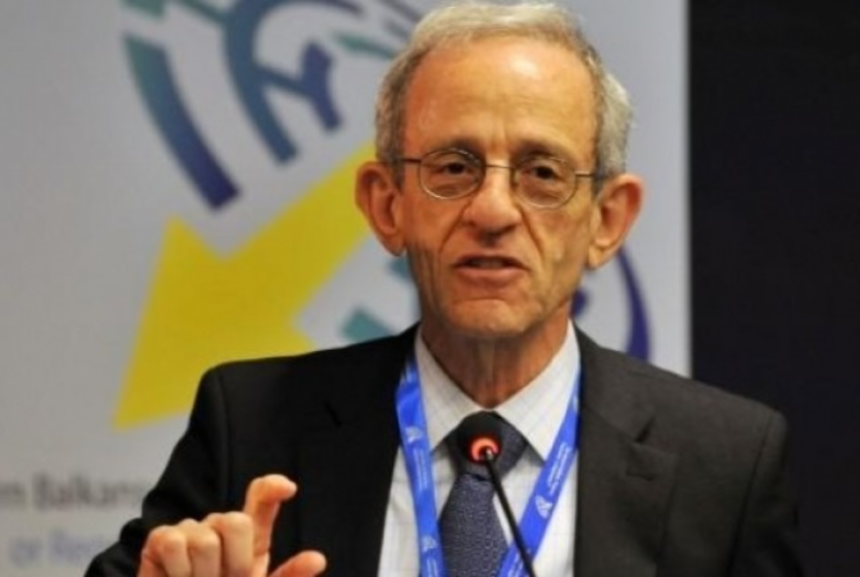Daniel Serwer on Ibër-Lepenc Canal Attack: “A Terrible Act” Requiring Evidence and Accountability
The recent attack on the Ibër-Lepenc canal has sparked significant concern, with Daniel Serwer, a renowned expert on Balkan affairs, calling it a “terrible act” that could severely impact Kosovo’s population. In a recent interview with RTK, Serwer stressed the urgent need for concrete evidence to determine the perpetrators behind the attack, highlighting the challenges in identifying responsible parties without clear proof.
“A Horrific Attack on Kosovo’s Infrastructure”
Serwer described the canal attack as a blow to the local population in Kosovo, emphasizing that the event could disrupt daily life for an extended period. “This is a horrific act. It will certainly affect the quality of life for many people for a long time. But, from Washington, it’s impossible to know who is responsible better than in Pristina or Belgrade,” Serwer noted. “It seems that neither side has concrete evidence about what exactly happened.”
While the possibility of Russian influence in organizing the attack was raised, Serwer refrained from drawing conclusions without sufficient evidence. He stressed that despite ongoing tensions, it’s premature to assign blame without clarity.
Serbia and Kosovo’s Tense Relations Over the Attack
As Kosovo’s government accuses Serbia of involvement, Serwer acknowledged the challenge in determining the true source of the attack. “It’s hard to determine the attackers or potential perpetrators. I don’t want to speculate without facts. Both Belgrade and Pristina will deny involvement and blame each other, but we need tangible evidence,” Serwer stated.
Serwer further commented on the ongoing Russian pressure on Kosovo, pointing to a series of incidents meant to destabilize the region, particularly in the north. He criticized the West for not holding Serbia accountable for these actions. “There have been multiple incidents, and all of these suggest that Belgrade is engaged in efforts to destabilize Kosovo, especially through the north. The EU and the U.S. should have reacted to these incidents. It’s a massive mistake that these attacks have gone unpunished,” Serwer emphasized.
Challenges in Kosovo’s Security Forces in the North
When asked about the role of Kosovo’s Security Forces (KSF) in the northern regions, Serwer expressed hesitation, citing the delicate balance of power between NATO and local forces. “There’s a problem with two armies operating in the same area at the same time. NATO does not want a second army in the north, and I understand that,” Serwer explained. “The KSF is not fully equipped or ready to defend Kosovo, especially in the north. There’s some hesitation, but the time will come for the KSF to deploy freely across Kosovo once NATO withdrawals are complete.”
Serwer also highlighted the more pressing issue of Serbian forces stationed near Kosovo’s borders. “NATO should focus on removing Serbian forces from the border with Kosovo. This should be the priority,” he added.
The Future of Kosovo-Serbia Dialogue: Serwer’s Outlook
Turning to the Kosovo-Serbia dialogue in Brussels, Serwer expressed skepticism about progress in the near future. He described the current dialogue as a “technical” process, one that has failed to produce tangible results since its inception in 2013. “The dialogue can continue under any conditions, but right now, the conditions are tough. I don’t expect significant results. Perhaps, the best we can hope for is honest discussions to reduce tensions,” Serwer said, stressing that real progress would not be feasible until January 2024.
Serwer also questioned whether Kosovo’s recognition by Serbia would be possible with President Aleksandar Vučić in power. “I doubt that recognition will be possible with President Vučić in power. Progress toward normalization seems unlikely,” he stated.
EU’s Role in Accountability: Kaja Kallas’ Upcoming Meetings
Serwer is also watching closely the upcoming meetings in Brussels involving Kaja Kallas, the new EU High Representative for Foreign Affairs and Security Policy. Kallas will meet with Albin Kurti, Kosovo’s Prime Minister, and Aleksandar Vučić, Serbia’s President. Serwer hopes Kallas will push for accountability, not only for the recent attack on the Ibër-Lepenc canal but also for previous incidents involving Serbia. “I expect Kallas to lower the temperature and emphasize accountability for this incident, but also for past actions. The EU needs to strengthen its stance against Belgrade, and I hope the U.S. will follow this lead,” Serwer concluded.






